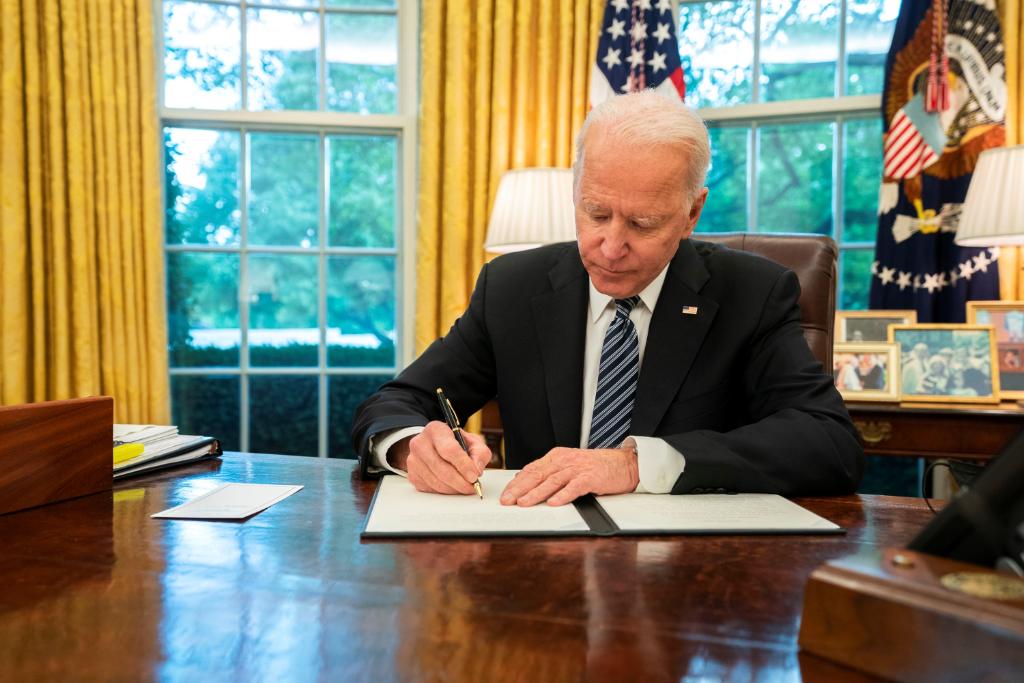
By Courtney Barnes and David Feldman
On October 6, 2022, President Joe Biden made three major announcements effecting the U.S. cannabis policy reform movement and state legal industry. First, he issued a presidential proclamation pardoning all U.S. citizens and lawful permanent residents who committed or have been convicted of the offense of simple possession of cannabis under federal law. Second, he called upon all state governors to similarly act to pardon all individuals convicted of simple possession of cannabis under state law. And third, and perhaps most radically, President Biden asked “the Secretary of Health and Human Services and the Attorney General to initiate the administrative process to review expeditiously how marijuana is scheduled under federal law.”
Part I of this two-part article series focuses on the President’s pardon announcements, and Part II will explain the President’s call for the Attorney General and HHS to initiate a scheduling review of marijuana pursuant to the federal Controlled Substances Act.
Though many will aptly argue that Biden’s presidential pardon announcement does not go far enough to rectify the injustices caused by the U.S. War on Drugs, at a minimum, the proclamation has the potential to tangibly impact at least six thousand people across the country who have been convicted of simple possession of cannabis under federal law. It is worth noting that the proclamation applies to both persons who have committed the offense of simple possession of cannabis under federal law, even if they were never charged or convicted, as well as those have been convicted of such offenses as of October 6, 2022. Accordingly, the implicit impact is likely to be exponentially greater than is calculable.
So, what exactly is a presidential pardon? A presidential pardon is one form of “executive clemency,” a term that describes the President’s constitutional power to exercise leniency toward persons who have committed federal crimes (including D.C. code offenses). While a pardon does not imply innocence, it does remove certain civil consequences that emanate from a conviction of a federal offense; for example, restrictions on the right to vote, sit on a jury, or hold state or local office that arose from the conviction for which a pardon is granted. The President cannot pardon a person convicted for a state (or local) criminal offense, which is why he included a call to action for state governors to pardon individuals convicted of simple possession of cannabis under state law. As political acceptance of cannabis and pardoning processes vary from state-to-state, it remains to be seen which jurisdictions follow suit.
It is also important to note that these pardons are not automatically issued. “The Attorney General, acting through the Pardon Attorney, is directed to develop and announce application procedures for certificates of pardon and to begin accepting applications in accordance with such procedures as soon as reasonably practicable.”[1] Although it appears that the President is seeking to make the process as streamlined as possible, eligible applicants will still likely have to apply to the federal government to receive these pardons. In addition, unless the conviction is subsequently expunged or sealed – processes that the President does not control – both the pardon and conviction will still appear on a person’s criminal record. Pardoned persons must continue to disclose the conviction on any form where such information is required; however, they are also permitted to disclose the fact that a pardon was received, which should, to some extent, lessen the stigma arising from such conviction. While we continue to call on the federal government to decriminalize cannabis and release all persons currently incarcerated for non-violent cannabis offenses, we believe that yesterday’s announcement is worth celebrating as a positive and substantial move in the right direction.
In Part II we will cover the President’s call for the Attorney General to initiate an “expeditious” scheduling review of marijuana pursuant to the federal Controlled Substances Act (CSA); a move that could have significant and permanent effects on the state legal industry.
For more information, contact Courtney Barnes at cbarnes@feldmanlegaladvisors.com or David Feldman at dfeldman@feldmanlegaladvisors.com or any member of our team.
[1] White House Briefing Room, A Proclamation on Granting Pardon for the Offense of Simple Possession of Marijuana, (October 6, 2022) https://www.whitehouse.gov/briefing-room/presidential-actions/2022/10/06/granting-pardon-for-the-offense-of-simple-possession-of-marijuana/